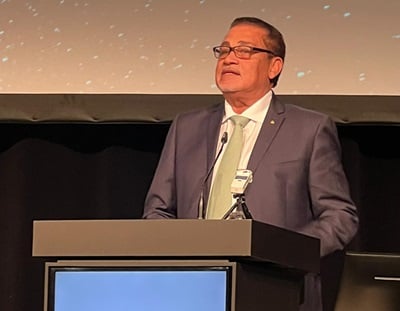Na-agbakwụnye a hotel tax onto bills seems to be the way to go if funding is needed for tourism promotion. But is that the right way to go to lure more tourists to a destination by charging them more?
In Canada at Point Edward village in Lambton County, Ontario, thinks so. The Point Edward’s council approved its first accommodation tax, adding 4 percent to bills for customers of hotels and other holiday rentals to fund local tourism marketing and facilities.
The Council voted his week to put the tax in place beginning January 1, 2020 after working with officials at Tourism Sarnia-Lambton to create the municipal bylaw matching the practice in approximately 40 other Ontario communities.
Eventually, all 11 Lambton municipalities are expected to be asked by the local tourism marketing agency to add the tax on bills for hotels, motels, Airbnbs, bed and breakfasts, and other holiday rentals.
Point Edward Mayor Bev Hand said the tax is a way of providing more funding for tourism marketing without going back to property taxpayers, who currently provide most of Tourism Sarnia-Lambton’s budget.
Hand, who sits on the tourism agency’s board, said the funding received from the tax can help bring in more events such as the tall ships weekend held this summer in Sarnia.
“It can grow more activities across the county for the benefit of everybody,” she said.
The tax will also give the village another source of funding for infrastructure projects “that will bolster tourism,” Hand said.
In particular, tourism businesses are looking for projects drawing more overnight visitors, she said.
“Tourism Sarnia-Lambton is very excited to move things forward,” said Mark Perrin, executive director of Tourism Sarnia-Lambton. “We feel that it’s getting traction and people are seeing the positives of what this can create.”
The municipal council in Lambton Shores has already been approached about considering the tax, and the agency is planning to speak with Sarnia council in November, Perrin said.
While it’s called a tax, “it’s more of a user-based service fee,” he said.
Visitors to the community who stay in holiday rentals will pay the fee, which residents of Lambton County can find themselves paying in other communities when they’re travelling, Perrin said.
Point Edward has six hotels, with approximately 700 rooms, near Highway 402 and the Blue Water Bridge crossing to Michigan.
The accommodation tax allowed by provincial rules will be split between the local marketing agency and the municipality.
IHE Ị GA-Ewepụ na edemede a:
- The Council voted his week to put the tax in place beginning January 1, 2020 after working with officials at Tourism Sarnia-Lambton to create the municipal bylaw matching the practice in approximately 40 other Ontario communities.
- Eventually, all 11 Lambton municipalities are expected to be asked by the local tourism marketing agency to add the tax on bills for hotels, motels, Airbnbs, bed and breakfasts, and other holiday rentals.
- Hand, who sits on the tourism agency's board, said the funding received from the tax can help bring in more events such as the tall ships weekend held this summer in Sarnia.























